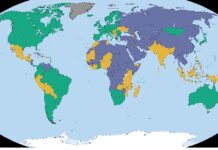Article 31C safeguards laws that are enacted to ensure the equitable distribution of the “material resources of the community” for the betterment of society (Article 39(b)) and to prevent the concentration of wealth and means of production to the detriment of the common good (Article 39(c)). According to Article 31C, these specific directive principles (Articles 39(b) and 39(c)) cannot be challenged by invoking the right to equality (Article 14) or the rights under Article 19 (such as freedom of speech and the right to peaceful assembly).
Article 31C protects laws that aim to ensure the fair distribution of resources within the community, serving the collective welfare (Article 39(b)) and preventing the concentration of wealth and means of production for the detriment of the common good (Article 39(c)). This article states that these particular directive principles (Articles 39(b) and 39(c)) cannot be challenged by invoking the right to equality (Article 14) or the rights granted under Article 19 (such as freedom of speech and the right to peaceful assembly).
The Constitution (25th) Amendment Act of 1971 made the addition of Article 31C to the Indian Constitution possible. This amendment was prompted by the “Bank Nationalization. Case,” in which the Supreme Court intervened to prevent the government from taking control of 14 commercial banks through the enactment of the Banking Companies (Acquisition and Transfer of Undertakings) Act, 1969.
During this case, the court concluded that the Banking Act did not sufficiently guarantee the affected parties’ right to compensation.
The purpose of the 25th Amendment was to overcome the challenges that hindered the implementation of the Directive Principles of State Policy. One method used to achieve this was the inclusion of Article 31C.
The 25th Amendment aimed to overcome the obstacles that prevented the effective implementation of the Directive Principles of State Policy. One of the measures adopted to address this was the introduction of Article 31C.
Supreme Court Deliberates Ongoing Case
The court is considering a challenge to Chapter VIII-A of the Maharashtra Housing and Area Development Act, 1976 (MHADA). This chapter was introduced through an amendment in 1986 and allowed the government to acquire “cessed” properties in Mumbai at the request of the occupants. This acquisition is justified under Article 39(b) of the Constitution, which emphasizes the responsibility to distribute the “material resources of the community” for the more significant benefit of society.
Occupants of these cessed properties, typically old and run-down buildings housing economically disadvantaged tenants, must pay a cess to the Mumbai Building Repair and Reconstruction Board. This board oversees repair and restoration projects for these properties. Here’s a rephrased version of the explanation:
The court is currently hearing a challenge to Chapter VIII-A of the Maharashtra Housing and Area Development Act, 1976 (MHADA). This chapter was added through an amendment in 1986, enabling the government to acquire “cessed” properties in Mumbai based on the occupants’ request. This acquisition is justified by citing the obligation under Article 39(b) of the Constitution, which emphasizes distributing the community’s “material resources” to promote the common good.
Occupants of cessed properties, which are typically old and unsafe buildings housing impoverished tenants, are required to pay a cess to the Mumbai Building Repair and Reconstruction Board, which oversees repair and restoration projects for these properties.
In 1991, the Property Owners’ Association in Mumbai challenged the 1986 amendment at the Bombay High Court. However, the court upheld the amendment and cited the protection provided by Article 31C to laws enacted in support of Article 39(b). This means that the court acknowledged the constitutional safeguard granted to laws that aim to advance the principles outlined in Article 39(b).
The appeal of this decision reached the Supreme Court in December 1992.
At that point, the main question was whether the phrase “material resources of the community” mentioned in Article 39(b) encompassed private resources like cessed properties. The Supreme Court had to determine whether these private resources could be considered part of the community’s material resources.
























































